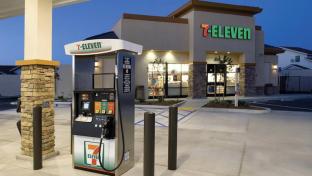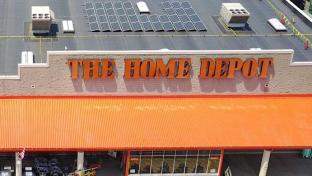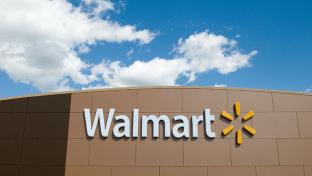Home Depot in big solar initiative
The nation's largest home improvement retailer has found a new use for its store roofs.
The Home Depot is partnering with GE's Current unit and Tesla on a rooftop solar project in 50 stores across five states (California, Connecticut, Maryland, New Jersey, New York, and the District of Colombia.) The initiative will reduce electricity grid demand by an estimated 30% to 35% annually at each location. Under a power purchase agreement, Home Depot will lease its roof space and buy the output from the systems.










